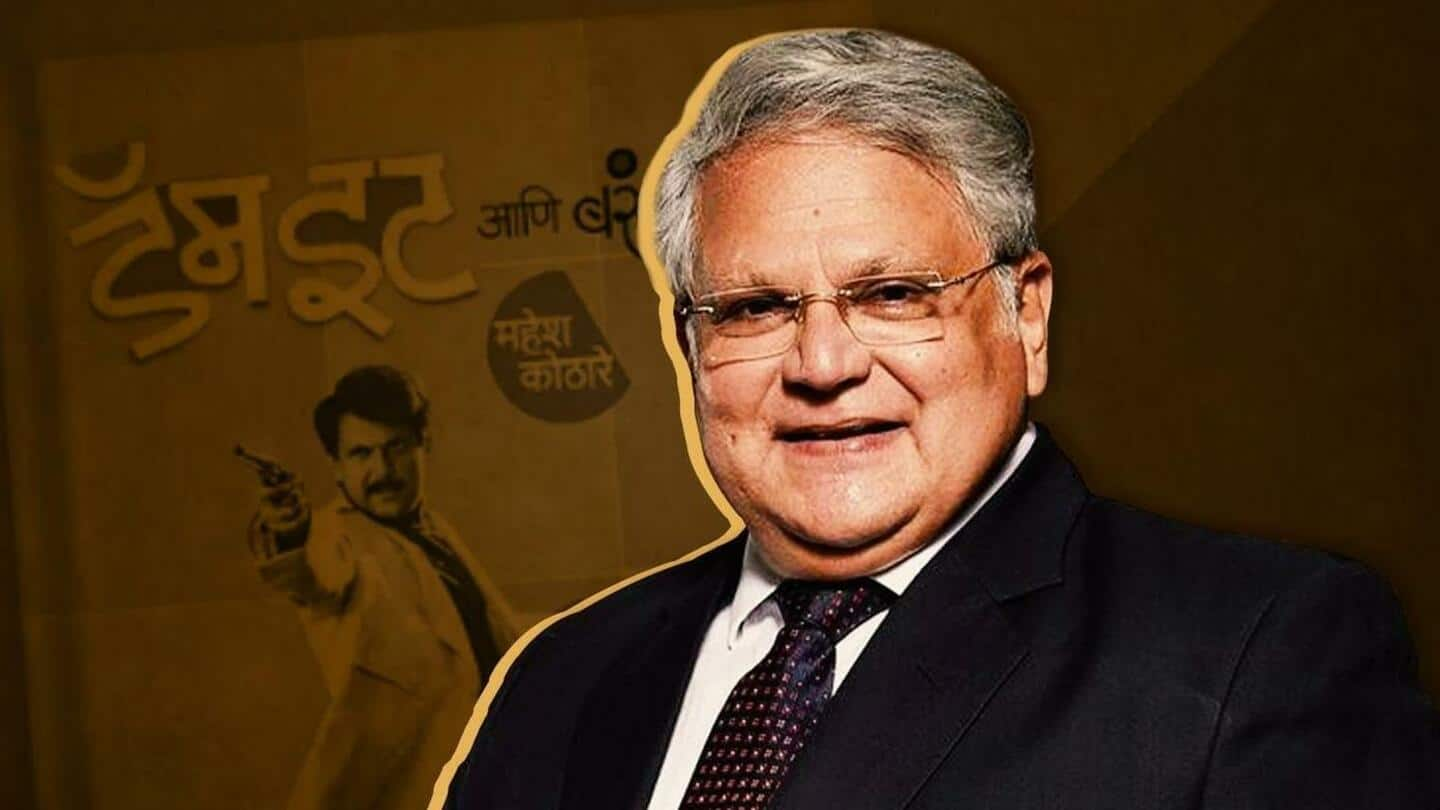
#NewsBytesExclusive: 'Marathi films needn't collaborate with others,' says Mahesh Kothare
What's the story
Veteran actor-filmmaker Mahesh Kothare has completed 60 years in the industry. From starting as a child artist to becoming a pioneer of new filmmaking technologies in Marathi cinema as a director-producer, Kothare has come a long way. He also launched his autobiography—Damn It Ani Barach Kahi—recently. In a candid chat with NewsBytes, Kothare talks about Marathi cinema's past, present, and future. Here are excerpts.
#1
Compared to other cinemas, are Marathi films getting enough attention?
Indian cinema was born from Marathi cinema. The first silent feature film in India was by a Marathi man (Dadasaheb Phalke) and a Marathi film. It (the Marathi film industry) has been thriving since the time of Phalke and Dadasaheb Torne and continues with its glory even today. I am very proud to be a part of this industry.
#2
Does Marathi cinema need to collaborate with Bollywood?
Recently, a lot of South Indian films have been dubbed into various languages, including Hindi. It is about time that we start making Marathi films, dubbing them in other languages, and releasing them simultaneously. There is no need for Marathi films to collaborate with other cinemas. Instead, dubbing them in multiple languages will help greatly to reach a wider audience.
#3
Your reaction on Marathi films being shortlisted for Oscars
It is a big reward for Marathi cinema. Earlier, Shwaas (2014) was sent as India's official entry to the Academy Awards. Although I am yet to watch the films, my best wishes are with the teams of Me Vasantrao and Tujhya Sathi Kahi Hi, and I wish that either of the films makes it to the final nominations.
#4
Any interesting anecdote from your child artist days?
Once when I was traveling from my school to home on a bus, I somehow, by mistake, got into the wrong bus. The conductor took money from me and asked me to get down in the middle. I was nearly in tears and didn't know what to do. That's when some people from the crowd recognized me as a child actor and helped me.
#5
Tell us about the time your career took a hit
After Lo Mai Aa Gaya, my career came crashing. There was a time when I sold our house due to financial liabilities. My family and I had gone to Kolhapur for shooting. We didn't know where we would live after returning. It was a situation where people normally think of giving up. But I was determined to fight and I eventually came out stronger.